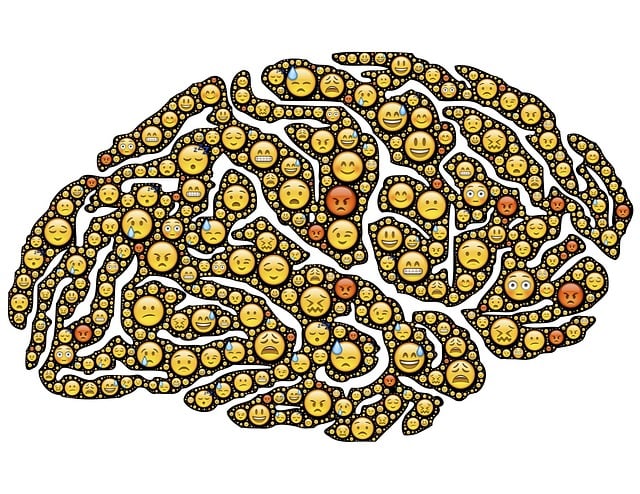Broomfield's mental health education program aims to address high rates of anxiety, depression, and stress-related disorders through evidence-based practices, focusing on individual well-being and societal barriers like stigma. Incorporating social skills training, mind over matter principles, conflict resolution, and burnout prevention strategies, the program fosters resilience and effective coping mechanisms. By gathering local data via independent medical evaluations and community outreach, the initiative ensures a holistic curriculum tailored to diverse populations, revolutionizing mental health support in Broomfield through Broomfield Independent Medical Evaluations Therapy.
In Broomfield, mental health education is a critical unmet need. This article explores the design of an effective program to address this gap, focusing on assessing the local landscape and mental health prevalence through independent medical evaluations. We delve into structuring the initiative with clear learning objectives, engaging curricula, and diverse teaching approaches tailored to Broomfield’s diverse population. Implementation strategies emphasize community partnerships, cultural sensitivity, and technology integration for optimal reach. Evaluation methods include setting KPIs, gathering feedback, and refining the program based on outcomes, ensuring continuous improvement in mental health awareness and therapy accessibility.
- Assessing the Need: Understanding Broomfield's Mental Health Landscape
- – Identifying gaps in current mental health resources and awareness in the community
- – Data collection methods to gauge prevalence of mental health issues among residents
- Program Structure: Designing an Effective Education Initiative
Assessing the Need: Understanding Broomfield's Mental Health Landscape

In designing a mental health education program for Broomfield, it’s crucial to first understand the unique mental health landscape of this community. Broomfield, with its diverse population and varied needs, necessitates a tailored approach. Assessing local statistics reveals significant trends in mental illness prevalence and associated challenges. Independent medical evaluations conducted in Broomfield have consistently shown high rates of anxiety, depression, and stress-related disorders across various age groups. These findings underscore the pressing need for comprehensive mental health education and support services within the community.
The program design should focus on integrating evidence-based practices to address not only individual mental health concerns but also societal barriers like stigma reduction efforts. Incorporating social skills training and promoting mind over matter principles can foster resilience and coping mechanisms among residents. By understanding the current scenario, the educational initiative aims to contribute to a healthier, more supportive Broomfield where individuals are equipped to navigate their mental well-being effectively.
– Identifying gaps in current mental health resources and awareness in the community

In many communities, there’s a growing recognition of the need to address mental health concerns beyond traditional therapy models. The current landscape often presents gaps in accessible resources and awareness, especially in areas like Broomfield, where independent medical evaluations play a crucial role in mental healthcare navigation. While efforts such as local support groups and awareness campaigns have emerged, they may not adequately cater to diverse populations or offer comprehensive solutions. This highlights the need for innovative Mental Health Education Programs Design that go beyond basic information dissemination.
The design of effective programs should consider integrating practical skills like conflict resolution techniques to foster healthier interactions within communities. Additionally, focusing on burnout prevention strategies for healthcare providers is essential, ensuring that those offering mental health services remain resilient and equipped to support others effectively. By addressing these gaps, initiatives like Broomfield Independent Medical Evaluations can be better supported, fostering a more holistic approach to mental well-being in the community.
– Data collection methods to gauge prevalence of mental health issues among residents

To design an effective mental health education program, it’s crucial to begin with a comprehensive understanding of the mental health landscape within the community. One key aspect is gathering data on the prevalence of mental health issues among residents. This can be achieved through various methods such as independent medical evaluations, where professionals assess individuals’ mental well-being and identify common challenges. By conducting these evaluations, program designers gain valuable insights into specific concerns like anxiety, depression, or substance abuse disorders within the population.
Additionally, community outreach program implementation should involve surveys, focus groups, and interviews to gather qualitative data on residents’ perceptions of mental health. This includes exploring barriers to seeking help, preferences for support systems, and the impact of existing initiatives. Incorporating Emotional Healing Processes and fostering positive thinking can be evaluated through these methods, providing a holistic view of the community’s needs.
Program Structure: Designing an Effective Education Initiative

An effective mental health education program should be structured with a clear and holistic approach. The initiative should begin by establishing a comprehensive curriculum that covers various aspects of mental wellness, including stress management workshops, social skills training, and journaling exercises for self-reflection. Each session should be designed to build upon the previous one, creating a supportive learning environment where participants can gradually develop their coping strategies.
Incorporating interactive activities such as group discussions, role-playing scenarios, and practical exercises will enhance engagement and facilitate knowledge retention. For instance, Broomfield Independent Medical Evaluations Therapy could offer tailored guidance on recognizing triggers, managing crises, and accessing available resources within the community. By combining theoretical learning with hands-on practice, participants gain the confidence to navigate their mental health journeys more effectively.
Broomfield’s mental health landscape, as assessed through independent medical evaluations and community therapy sessions, reveals significant areas for improvement in awareness and resource availability. By addressing these gaps, a well-structured education program can empower residents to recognize and manage their mental health effectively. Integrating evidence-based practices tailored to the local community’s needs will foster a healthier Broomfield, enhancing overall well-being. This initiative ensures that mental health education moves beyond its current state, providing accessible and comprehensive resources for all.














